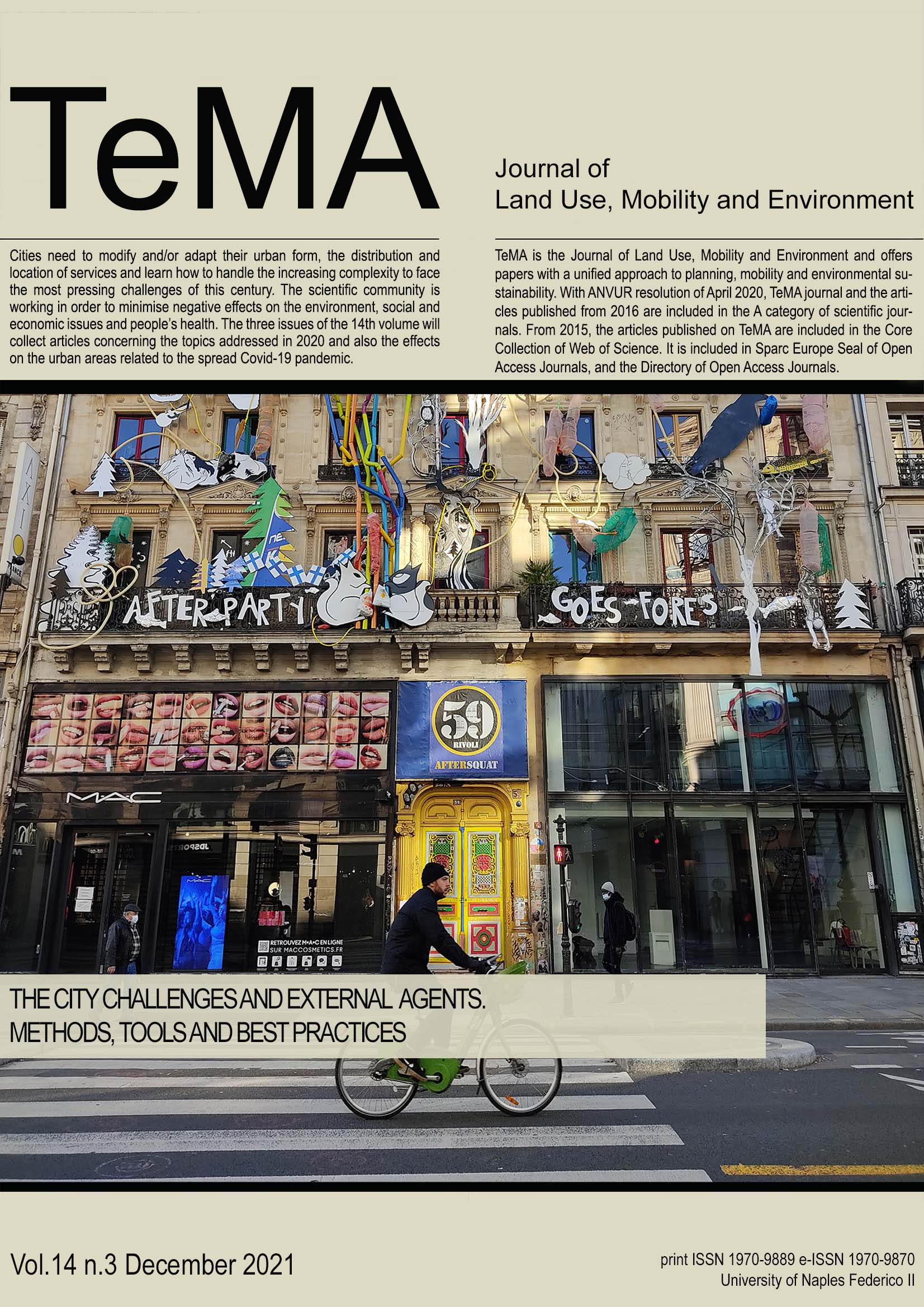The city as a complex system in structural crisis
Abstract
Evergreen section
This article was published in Italian in 1995 with the title “La città come sistema complesso in crisi strutturale” as a contribution in the volume Bertuglia, S.C., Fuccella, R. & Sartorio, G. (eds), La città come sistema complesso in crisi strutturale: strumenti e tecniche per il governo metropolitano, Giuffrè, Milano. The book is included in the Studi Urbanistici series published by Fondazione Aldo Della Rocca and it can be consulted, in its original version, at the following address: https://www.fondazionedellarocca.it/
We thank the President Gian Aldo Della Rocca for having authorized the publication of the research in English. The paper in this new section of TeMA Journal, Evergreen, is the literal English translation. This section aims at drawing the attention of the international scientific community to papers that, despite the passing of time, still present elements of significative scientific interest – insights, anticipations and reflections – enough to deserve careful read back.
Abstract
The paper aims to be a contribution to the resolution of the deep crisis that has been affecting the current urban realities, facing the problem in all of its aspects, such as those of scientific and methodological approach and operating procedures. In other terms, the awareness of the priority of the “city problem” on a national and international scale makes it necessary, not only the re-examination of the procedures by which urban phenomena have been faced until today, but also and firstly the “way of seeing” the city, and therefore the philosophy of approach to the urban issue.
Downloads
Copyright (c) 2021 TeMA - Journal of Land Use, Mobility and Environment

This work is licensed under a Creative Commons Attribution 4.0 International License.
Authors who publish in this journal agree to the following:
1. Authors retain the rights to their work and give in to the journal the right of first publication of the work simultaneously licensed under a Creative Commons License - Attribution that allows others to share the work indicating the authorship and the initial publication in this journal.
2. Authors can adhere to other agreements of non-exclusive license for the distribution of the published version of the work (ex. To deposit it in an institutional repository or to publish it in a monography), provided to indicate that the document was first published in this journal.
3. Authors can distribute their work online (ex. In institutional repositories or in their website) prior to and during the submission process, as it can lead to productive exchanges and it can increase the quotations of the published work (See The Effect of Open Access)

